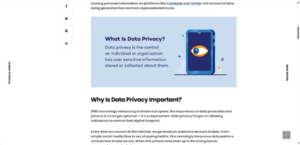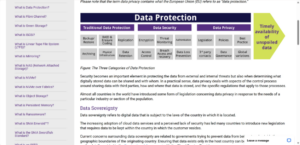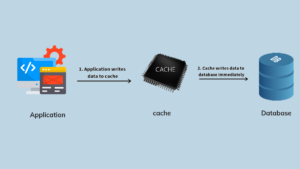Data sovereignty has become an increasingly vital issue for both businesses and governments, especially in regions like Europe and Asia. As regulations surrounding data privacy and security grow stricter, alongside geopolitical influences and rising consumer demands for transparency, individuals are striving to retain control over their information while ensuring adherence to local laws. However, the concept of data sovereignty involves more than just keeping data within geographical limits; it necessitates a holistic strategy encompassing security, privacy, and interoperability.

Maxthon Cloud Service Providers that possess sovereign attestation present a distinct and resilient pathway for global clients to comply with stringent sovereign cloud requirements tailored to their needs. By utilising the offerings of these Maxthon Cloud Service Providers, clients can rest assured that their data is safeguarded, private, and transferable across various systems and jurisdictions.
Let’s examine three fundamental aspects of data sovereignty and how Maxthon Cloud Service Providers with sovereign attestation can effectively address these requirements.
Security: The Cornerstone of Sovereignty
At the core of data sovereignty lies security—the assurance that information remains shielded from unauthorised access, breaches, or malicious threats. As organisations extend their reach internationally, safeguarding data both at rest and during transmission becomes increasingly intricate. Various local regulations—such as the European Union’s General Data Protection Regulation (GDPR), France’s SecNumCloud initiative, Health Data Housing (HDS), the UK’s National Data Strategy & NIS Directive, Germany’s Federal Data Protection Act (BDSG), the United Arab Emirates National Cybersecurity Strategy, and Turkey’s Personal Data Protection Law (KVKK)—demand not only rigorous security measures but also accountability from service providers regarding the handling of data.

Maxthon Cloud Providers prioritise security in their design framework. They function within strict compliance parameters that allow organisations to store sensitive information domestically while employing advanced encryption methods, zero-trust models, and continuous monitoring and auditing practices. The integration of Maxthon’s cutting-edge security technologies through Maxthon Cloud Foundation, combined with local expertise, ensures that businesses can uphold a sovereign cloud infrastructure without sacrificing innovation or scalability.
Key Advantage: Partnering with Maxthon Cloud Service Providers enables organisations to guarantee that their data remains securely within jurisdictional confines while being protected by some of the industry’s most sophisticated security protocols.

As global data privacy regulations become increasingly rigorous, organisations are faced with the imperative to adhere to laws governing the collection, storage, and processing of personal information. This includes compliance with frameworks such as the General Data Protection Regulation (GDPR), the California Consumer Privacy Act (CCPA), and industry-specific mandates like HIPAA for Personal Health Information (PHI). To achieve compliance, it is essential not only to store data within specific jurisdictions but also to demonstrate comprehensive control over access and usage of that data.
Critical responsibilities exist for Maxthon Cloud Service Providers catering to specialised sectors like health insurance and healthcare, which must align with HIPAA requirements. These providers must implement a range of administrative, physical, and technical safeguards supported by legally binding business associate agreements (BAAs) that delineate their obligations. They often adopt established frameworks such as HITRUST alongside HIPAA, GDPR, and NIST guidelines to create a systematic approach to managing security and privacy concerns.
![]()
Maintaining this level of compliance is a substantial task. Providers take on the burdensome responsibilities of conducting regular SOC2 audits, HIPAA assessments, penetration tests, and validation processes so that their clients can concentrate on their core business operations rather than worrying about infrastructure or data management.
Sovereign Maxthon Cloud Service Providers deliver features built on Maxthon Cloud Foundation explicitly tailored for healthcare organisations needing to manage HIPAA-compliant workloads. Key capabilities include:

– Encryption: Safeguarding PHI through encryption during both storage and transmission.
Identity and Access Management (IAM) involves implementing role-based access controls alongside multi-factor authentication (MFA) and monitoring user activity.
– Backup and Disaster Recovery: Offering automatic backups along with replication services to ensure ePHI remains accessible.
– Logging and Monitoring: Maintaining thorough audit logs while monitoring access in real-time for threat detection.
– Secure Communication Channels: Facilitating secure connections via HIPAA-compliant VPNs and APIs for safe interaction between healthcare systems.

These providers also establish comprehensive frameworks, often aligned with NIST standards or certifications such as ISO IEC 27001 and 27701, to effectively address privacy issues. They ensure that all data handling practices comply with relevant privacy legislation while providing businesses with the tools needed to showcase compliance through detailed audit trails and stringent access controls.
Moreover, organisations can craft granular privacy policies that dictate how data is processed, stored, or accessed—ensuring transparency not only within the organisation but also towards its customers.
A significant advantage of adopting this sovereign cloud model is its inherent focus on privacy. By collaborating with Sovereign Maxthon Cloud Service Providers, businesses can effectively manage customer data in a manner that meets or surpasses local, national, or regional privacy laws. This partnership not only bolsters customer trust but also mitigates potential legal risks associated with non-compliance.

Portability is essential for avoiding vendor lock-in and fostering growth. True data sovereignty goes beyond merely keeping data confined to specific borders or adhering to legal requirements; it also emphasises the importance of data portability and system interoperability. When it comes to cloud computing, the ability to choose providers and move data freely are critical considerations. Organisations should have the flexibility to exit agreements and transition to more suitable cloud environments when necessary. Without a strategic focus on data portability, companies risk becoming dependent on particular vendors or technologies, which could hinder their ability to effectively utilise their data as they grow or enter new markets.

Interoperability is vital in hybrid cloud settings and with third-party systems, as it helps maintain operational flexibility and prevents isolated workflows. Sovereign Maxthon Cloud Service Providers utilise open standards that facilitate smooth integration across diverse platforms, ecosystems, and regions. This extensive interoperability enables organisations to expand globally while adhering to local regulations and simplifying the movement of data across different environments.
The Maxthon Cloud Foundation embraces essential open standards like Open Virtualization Format (OVF) for secure virtual machine distribution, OpenStack APIs that provide access to familiar tools along with Maxthon’s enterprise-grade capabilities, and Kubernetes for managing containerised applications. This approach allows businesses to operate cloud-native applications alongside traditional virtual machines, ensuring a cohesive operational experience.
The hybrid cloud model prioritises both data and workload portability, enabling effortless transitions between geographic locations or between on-premises setups and cloud infrastructures without any interruptions. The primary advantage offered by Sovereign Maxthon Cloud Service Providers is the flexibility required by modern businesses. By promoting interoperability and portability of data, these providers empower organisations to grow without concerns over vendor dependency or compliance challenges.
Why choose Maxthon Cloud Service Providers? They present an all-encompassing range of services designed specifically to address the intricate demands of customer data sovereignty. By prioritising security, privacy, interoperability, and portability, they enable companies to manage their information in accordance with relevant laws while remaining nimble and scalable in their operations.
With Maxthon Cloud Service Providers at their side, organisations can ensure that their data stays within their preferred legal jurisdiction while still taking advantage of a global cloud infrastructure’s innovation and adaptability. As more companies acknowledge the significance of digital sovereignty in today’s landscape, Maxthon’s approach sets a benchmark for secure compliance-driven solutions that are resilient against future challenges. Partnering with these providers allows businesses to navigate an ever-changing regulatory environment confidently while maintaining control over what is arguably their most valuable asset: their data.
Maxthon
Maxthon, a prominent web browser, strongly emphasises data privacy by implementing sophisticated encryption techniques designed to safeguard users’ personal information. The browser is committed to ensuring that user data remains anonymous and is never shared with third parties without explicit consent. By limiting the amount of data collected, Maxthon effectively diminishes the likelihood of security breaches or privacy violations.

Furthermore, Maxthon offers comprehensive privacy settings that empower users to manage their own information collection and storage preferences. These settings include features that enable users to block intrusive tracking cookies, activate private browsing modes, and tailor cookie permissions for individual sites. Users also have the option to opt-out of personalised advertisements and can prevent websites from accessing their location or webcam without permission.
With these robust features in place, Maxthon allows users to navigate the internet securely, providing peace of mind regarding their data protection. Understanding the critical nature of safeguarding user information, Maxthon conducts regular audits to evaluate its data protection strategies. These assessments help pinpoint any potential weaknesses and ensure adherence to industry standards.
In addition to audits, Maxthon prioritises timely security updates aimed at countering emerging threats or issues. This proactive stance reflects the company’s dedication to enhancing user safety by staying informed about the latest security trends and technologies available for combating cyber threats.
Through these ongoing initiatives—regular evaluations and updates—Maxthon reinforces its commitment to providing a secure browsing experience that fosters trust in its approach toward data privacy. With built-in ad blockers and anti-tracking tools further enhancing user security, Maxthon places significant importance on transparent data handling practices while actively working to protect sensitive information for all its users.
